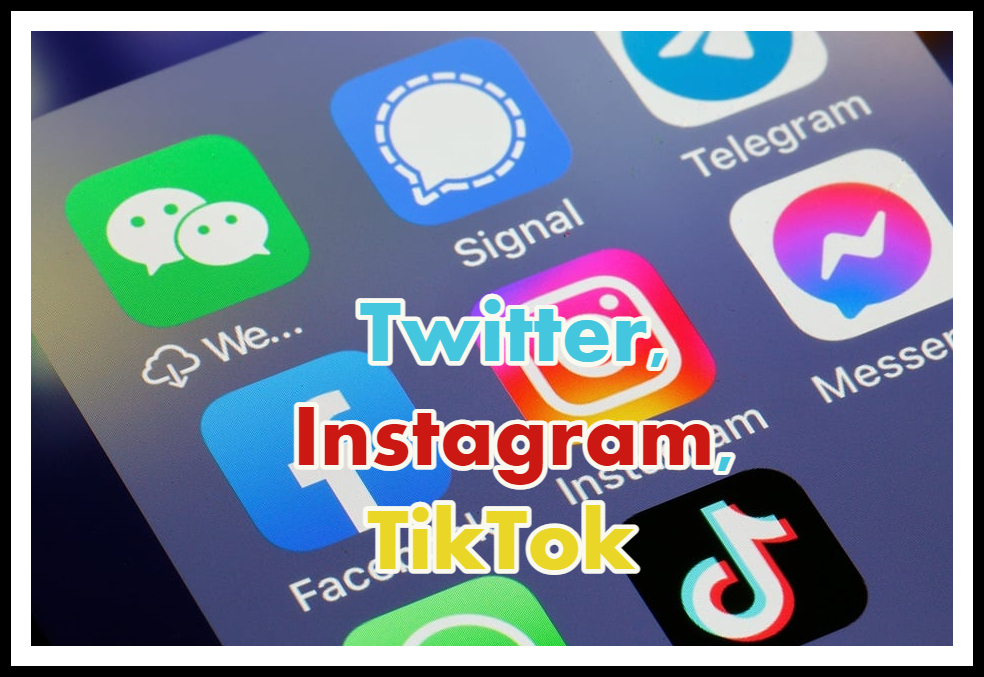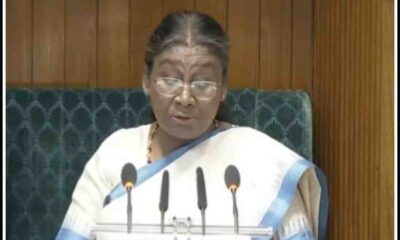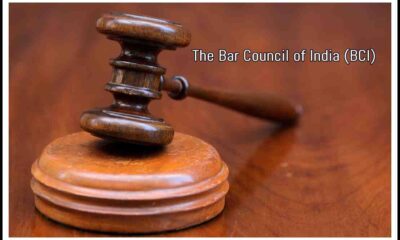Science –Technology
Twitter, Instagram, TikTok, and other 19 tech giants will be subject to stricter EU online content regulations
Published
1 year agoon

There are more than 45 million active monthly users across all 19 companies that will be governed by the EU’s Digital Services Act.The European Union designated 19 online platforms, including Instagram, TikTok, and Twitter, as having such large user bases that they will be subject to stricter content regulatory rules.
The list, which includes services from Amazon, Google, Meta, Instagram, and Microsoft, has over 45 million monthly active users.
This classifies them under a new EU law known as the Digital Services Act (DSA), which goes into effect in August and imposes measures such as annual audits and a duty to effectively combat disinformation and hate content.
The EU’s internal market commissioner, Thierry Breton, stated in a statement that “these platforms and search engines will not be able to act as if they were ‘too big to care’” in four months.”This new supervision system will cast a wide and tight net and catch all points of failure in a platform’s compliance,” he continued.
Read Also:- Indian-Origin CEO on US Advisory Board for Racial Justice.
Twitter, owned by US billionaire Elon Musk, Alphabet’s Google Search, Google Maps, Google Shopping, and Google Play divisions, as well as its YouTube subsidiary, and Meta’s Facebook and Instagram are among the platforms that reach the 45-million-user threshold.
Others include the professional networking website LinkedIn from Microsoft, the iOS App Store from Apple, Wikipedia, the messaging app Snapchat, and the Pinterest for artistic images.They fall under the DSA’s “Very Large Online Platform” (VLOP) or “Very Large Online Search Engine” (VLOSE) categories.
Although Chinese-owned platforms TikTok and e-commerce site AliExpress are also featured, the majority of the businesses on the list are US-based.
Zalando, a German online fashion retailer, was also listed by the commission.
Huge penalties
On Tuesday, Breton informed the media that his team would conduct “stress tests” to determine Twitter’s readiness for compliance “at the end of June.”
TikTok had also expressed interest in working with him to ensure compliance, he continued.
The announcement on Tuesday comes after an impending deadline for online businesses to release user statistics in Europe in February.
The DSA has a wide range of goals, including requiring platforms to better protect children, increasing transparency around digital services, prohibiting the online sale of unsafe goods, and providing users with more options when shopping online in the EU.The rules allow the EU to levy fines of up to 6% of the platforms’ annual global sales for repeated violations.
By August 25, 2023, the 19 platforms must have an independent compliance system in place and provide the European Commission with their first annual risk assessment, including how they intend to handle content on mental health and gender-based violence.
The commission will then conduct an impartial audit and provide oversight.
The DSA’s designations, according to Vice President of the Commission Margrethe Vestager, are a “huge step forward” in bringing “meaningful transparency and accountability of platforms and search engines and give consumers more control.”
The Swedish music-streaming website Spotify, the American dating app Tinder, and the home-rental website Airbnb are among the online services that have declared they are under the 45 million user mark.Breton refused to specify which platforms might be added to the list, saying only that “four to five” more could be added “in the coming weeks.”
The EU passed two significant laws last year to control digital platforms and safeguard EU users, one of which is the DSA.The DSA regulations, which will be applicable to everyone as of February 17, 2024, are in addition to the special obligations for very large platforms.
The second law, the Digital Markets Act, forbids so-called “gatekeepers” of the internet from acting in an anti-competitive manner.
You may like
-


North Korea asserts that the test of a multiple-warhead missile was successful
-


The Student Wing of Congress storms the Exam Body NTA office and locks it from within
-


“During President Murmu’s address to Parliament, PM Modi was shown 73 times, and LoP Rahul Gandhi was shown six times”: Congress
-


NASA contracts Elon Musk’s SpaceX to deorbit the International Space Station in 2023.
-


A Caution For The CBI In The Delhi Court’s Arvind Kejriwal Custody Order
-


Bar Council of India requests that bar associations abstain from demonstrating in opposition to new criminal laws

